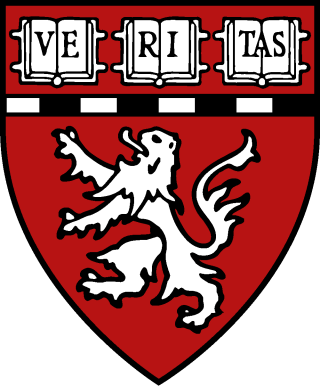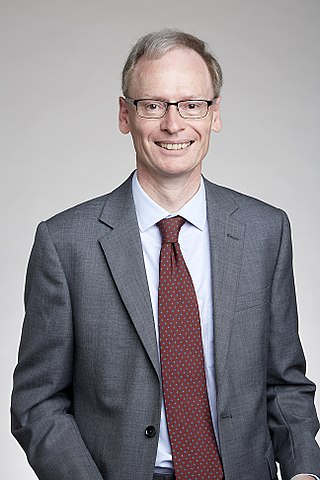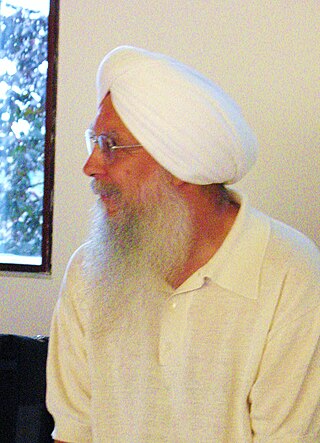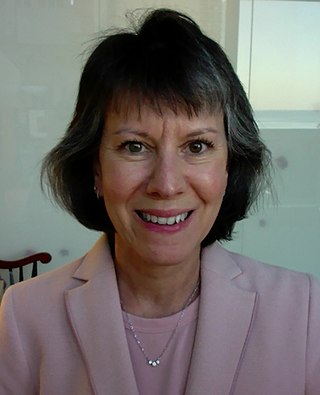Related Research Articles

Harvard Medical School (HMS) is the graduate medical school of Harvard University and is located in the Longwood Medical Area in Boston, Massachusetts. Founded in 1782, HMS is one of the oldest medical schools in the United States. Unlike most other leading medical schools, HMS does not operate in conjunction with a single hospital but is directly affiliated with several teaching hospitals in the Boston area. Affiliated teaching hospitals and research institutes include Dana–Farber Cancer Institute, Massachusetts General Hospital, Brigham and Women's Hospital, Beth Israel Deaconess Medical Center, Boston Children's Hospital, McLean Hospital, Cambridge Health Alliance, The Baker Center for Children and Families, and Spaulding Rehabilitation Hospital.

Beth Israel Deaconess Medical Center (BIDMC) in Boston, Massachusetts is a teaching hospital of Harvard Medical School. It was formed out of the 1996 merger of Beth Israel Hospital and New England Deaconess Hospital. Among independent teaching hospitals, Beth Israel Deaconess Medical Center consistently ranks in the top three recipients of biomedical research funding from the National Institutes of Health. Research funding totals nearly $200 million annually. BIDMC researchers run more than 850 active sponsored projects and 200 clinical trials. The Harvard-Thorndike General Clinical Research Center, the oldest clinical research laboratory in the United States, has been located on this site since 1973.
The University of Texas Southwestern Medical Center is a public academic health science center in Dallas, Texas. With approximately 23,000 employees, more than 3,000 full-time faculty, and nearly 4 million outpatient visits per year, UT Southwestern is the largest medical school in the University of Texas System and the State of Texas.

Brigham and Women's Hospital (BWH) is the second largest teaching hospital of Harvard Medical School and the largest hospital in the Longwood Medical Area in Boston, Massachusetts. Along with Massachusetts General Hospital, it is one of the two founding members of Mass General Brigham, the largest healthcare provider in Massachusetts. Robert Higgins, MD, MSHA serves as the hospital's current president.

Paul M. Ridker is a cardiovascular epidemiologist and biomedical researcher. He is currently the Eugene Braunwald Professor of Medicine at Harvard University and Brigham and Women's Hospital, where he directs the Center for Cardiovascular Disease Prevention. Ridker also holds an appointment as Professor in the Department of Epidemiology at the Harvard T.H. Chan School of Public Health.

Ted Jack Kaptchuk is an American medical researcher who holds professorships in medicine and in global health and social medicine at Harvard Medical School. He researches the placebo effect within the field of placebo studies.

Hugh Christian Watkins is a British cardiologist. He is a Fellow of Merton College, Oxford, an associate editor of Circulation Research, and was Field Marshal Alexander Professor of Cardiovascular Medicine in the University of Oxford between 1996 and 2013.

Helene Langevin is Director of the National Center for Complementary and Integrative Health (NCCIH) at the National Institutes of Health (NIH).

Sat Bir Singh Khalsa is a researcher in the field of body mind medicine, specializing in yoga therapy. Originally from Toronto, he earned his Ph.D. at the University of Toronto, where he also began his practice of Kundalini Yoga under the tutelage of Yogi Bhajan. He is an Associate Professor of Medicine at Harvard Medical School Sat Bir Singh Khalsa serves as the Director of Yoga Research for Yoga Alliance and the Kundalini Research Institute, Research Associate at the Benson Henry Institute for Mind Body Medicine, and Research Affiliate of the Osher Center for Integrative Medicine.
Howard Haym Hiatt is a medical researcher involved with the discovery of messenger RNA. He was the past chair of the department of medicine at Beth Israel Hospital in Boston from 1963-1972. He was past dean of the Harvard School of Public Health from 1972–1984. He was co-founder and associate chief of the Division of Social Medicine and Health Inequalities at the Brigham and Women's Hospital, and was also the Associate Chief of the hospital's Division of Global Health Equity. He was a founding head of the cancer division of Beth Israel Hospital. He was a member of the team at the Pasteur Institute, Paris, led by Francois Jacob and Jacques Monod, which first identified and described messenger RNA, and he was part of the team led by James Watson that was among the first to demonstrate messenger RNA in mammalian cells.
Franklin G. Miller is an American bioethicist and senior faculty member at the National Institutes of Health (NIH).
Christopher A. Walsh is the Bullard Professor of Neurology at Harvard Medical School, Chief of the Division of Genetics at Children's Hospital Boston, Investigator of the Howard Hughes Medical Institute, and the former Director of the Harvard–MIT MD–PhD Program. His research focuses on genetics of human cortical development and somatic mutations contributions to human brain diseases.
Mary-Ellen Taplin, is a research oncologist at Dana Farber Cancer Institute and Brigham and Women's Hospital in Harvard's Longwood Medical and Academic Area.
Asbjørn Hróbjartsson is a Danish medical researcher. He is Professor of Evidence-Based Medicine and Clinical Research Methodology at the University of Southern Denmark, as well as head of research at Odense University Hospital's Center for Evidence-Based Medicine. He is the former editor-in-chief of the Danish journal Bibliotek for Læger. He is also affiliated with the Nordic Cochrane Centre in Copenhagen. He received his Ph.D. in June 2001 from the University of Copenhagen, with a thesis entitled Are placebo interventions associated with clinically important effects? He is best-known for a 2001 article he co-authored with Peter C. Gotzsche on the placebo effect. The article reviewed 114 studies comparing placebo treatment to no treatment, and concluded that placebos did not have clinically important effects for any condition, with the exception of self-reported pain and other continuous subjective outcomes. He has also co-authored a subsequent paper on placebo effect research with Ted Kaptchuk and Franklin G. Miller.
Charlotte Blease is a Northern Irish philosopher of medicine from Belfast, Northern Ireland. She is a healthcare researcher at General Medicine, Beth Israel Deaconess Medical Center, Harvard Medical School, Boston USA. Formerly she was a Fulbright Scholar to the Program in Placebo Studies at Harvard Medical School. She is a former Irish Research Council fellow and a Queen's University, Belfast lecturer.

Lucila Ohno-Machado is a biomedical engineer and Deputy Dean for Biomedical Informatics at the Yale University School of Medicine. She is an elected member of the American Society for Clinical Investigation and the National Academy of Medicine.

Christine Edry Seidman is the Thomas W. Smith Professor of Medicine at Harvard Medical School and director of the Cardiovascular Genetics Center at Brigham and Women's Hospital. She operates a joint lab with her husband, Jonathan Seidman, where they study genetic mechanisms of heart disease. In recognition of her scientific contributions, she was elected as a fellow of the National Academy of Sciences, American Academy of Arts and Sciences, and National Academy of Medicine.
Valerie Ellen Stone is an American physician who is a professor of medicine at the Harvard Medical School. She serves as Vice Chair for Diversity, Equity, and Inclusion, Department of Medicine, Brigham and Women's Hospital. She specializes in the management of HIV/AIDS, health disparities and improving the quality of medical education.
Cynthia Casson Morton is an American geneticist, professor at Harvard Medical School, and director of cytogenetics at Brigham and Women's Hospital.

Elizabeth M. McNally is an American human geneticist and cardiologist. She is the Elizabeth J. Ward Chair and director of the Center for Genetic Medicine at Northwestern University's Feinberg School of Medicine.
References
- 1 2 "Outsmarting the placebo effect" By Kelly Servick, Science Magazine Vol 345 Issue 6203, 19 September 2014
- ↑ Organizational Chart: Deputy Director: Kathryn Hall Boston Public Health Commission, February 2022
- ↑ Kathryn T. Hall, PhD: Director of Basic & Translational Research, Osher Center For Integrative Medicine: Harvard Medical School And Brigham and Women's Hospital
- 1 2 Kathryn Tayo Hall, PhD, MPH, Class of 1996 Harvard Edu: Perspectives of Change
- ↑ Kathryn Tayo Hall, Ph.D. Harvard Catalyst Profiles, Jan 9, 2022
- 1 2 3 Kathryn T. Hall, PhD, MPH Brigham and Women's Hospital: Division of Preventive Medicine Faculty
- ↑ Publications of KT Hall National Library of Medicine
- ↑ Kathryn Hall at Google Scholar
- 1 2 "Is the Placebo Effect in Your DNA?" By Cari Romm, The Atlantic, 13 April 2015
- ↑ "Are you easily pleased?" Science & technology: Genes and the placebo effect, The Economist, 2 May 2015
- 1 2 "What if the Placebo Effect Isn't a Trick?" By Gary Greenberg, The New York Times, 7 Nov 2018
- 1 2 "Power of the Placebo" By Erik Vance, Discover magazine, 20 Jul 2014
- ↑ Interview with Dr. Kathryn Hall on Placebo Research Osher Center For Integrative Medicine, Harvard Medical School And Brigham and Women's Hospital, 28 July 2021
- ↑ Placebos expert Kathryn T Hall: ‘The effect can rival painkillers like ibuprofen or even morphine’ by Zoë Corbyn, 8 Oct 2022, The Guardian
- ↑ Kathryn T Hall1 and Ted J Kaptchuk, "Genetic biomarkers of placebo response: what could it mean for future trial design?" Program in Placebo Studies, Beth Israel Deaconess Medical Center, Harvard Medical School, 1 Apr 2013, doi:10.4155/cli.13.8.
- ↑ Kathryn T Hall, Paul M Ridker, et al., "Genetic variation at the coronary artery disease risk locus GUCY1A3 modifies cardiovascular disease prevention effects of aspirin", European Heart Journal, June 2019, DOI:10.1093/eurheartj/ehz384
- ↑ Placebos by Kathryn T Hall, MIT Press Essential Knowledge series (October 2022), ISBN 9780262544252